
Dramatic Play
Dramatic play helps build creativity. Read about how to support kids in playing pretend.
It’s possible to play without any toys at all! Children usually begin dramatic or fantasy play around age two. They may pretend that a block building is their house, or that the kitchen is their restaurant. Dramatic play helps kids exercise their imaginations and work on their creativity. Role play (pretending to be a doctor, teacher, mom, dad, and so on) can also help kids learn about the purpose and jobs of people in their neighborhood and life.
As kids get a little older (ages four to six), they may begin to play pretend with their siblings or peers. Switching roles and coming up with stories together will help build language skills, as well as skills for sharing, taking turns, and cooperating.
Here are a few pretend scenes to play out:
- Camping. Make a “tent” using a blanket and chairs, and say, “Let’s pretend to roast marshmallows!” Afterwards, you might pretend you’re getting into sleeping bags in the tent.
- Outer Space. Take turns flying a space ship and walking on the moon. Ask kids to look out the window of their spaceship. Say, “What do you see in the sky?”
- Restaurant. Work on memory skills as you take each other’s orders, and brainstorm delicious creations to cook. Ask kids, “What ingredients do we need? What tools can we use to cook?” Pretend to use pots, pans, and kitchen tools to create a special meal together.
- Garden. Talk about the fruits and vegetables you want to plant. Then, pretend to dig up soil, sprinkle seeds, cover them, and water them. How tall do your plants grow?
- Bath time. Pretend to wash a doll or stuffed animal. Label the body parts you’re washing and then dry off and dress the doll. Ask kids what else they might do to take care of a baby, and act it out!
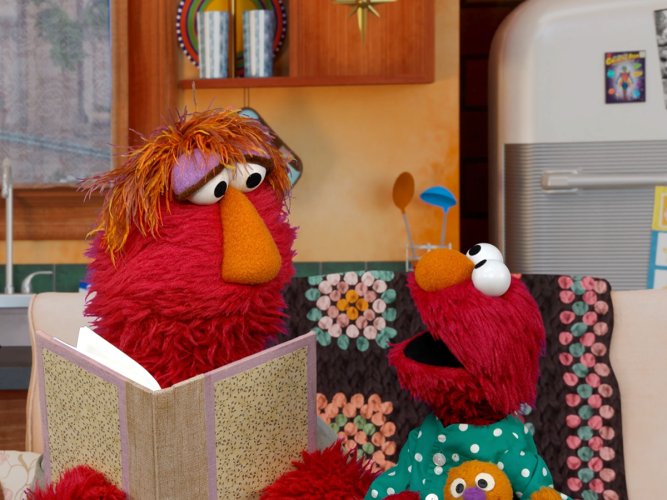
Go To Sleep, Elmo!
Handling a middle-of-the-night monster moment.
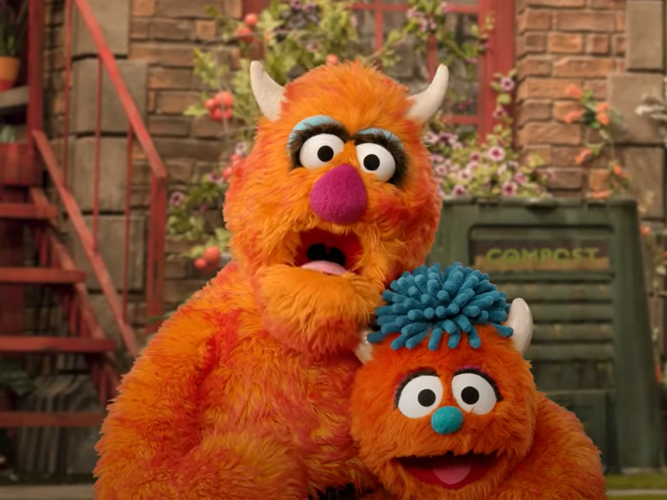
Monster Meltdown
Meltdowns happen… but they are somewhat predictable! As you try to handle them, curiosity and patience go a long way.
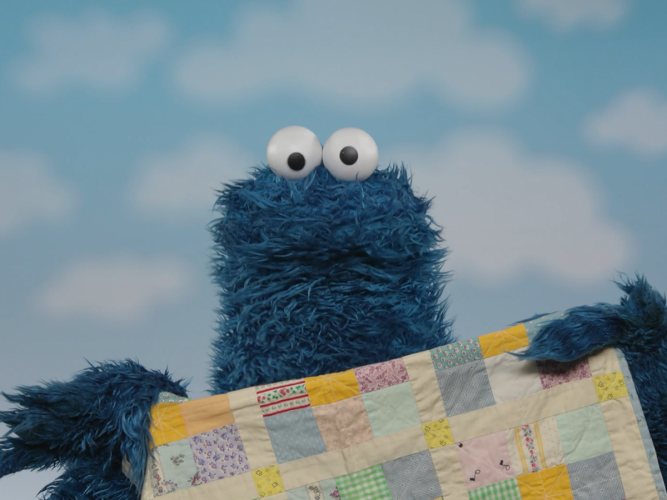
Cookie Monster’s Beach Day
When children are in the hospital, their imagination can become a valuable tool in soothing themselves.
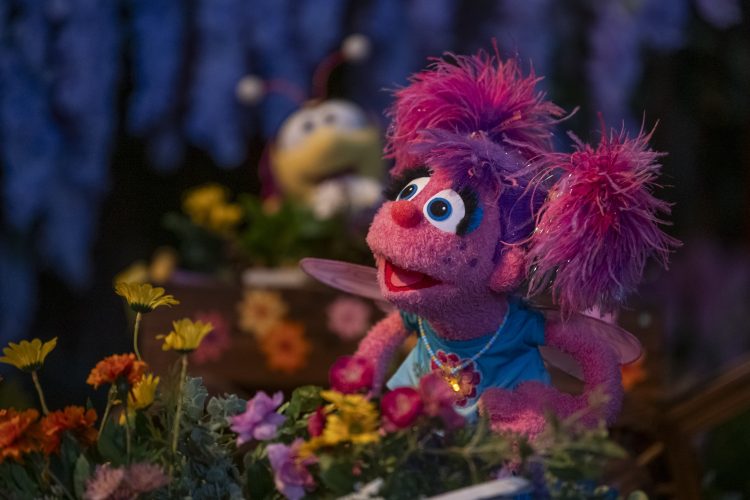
Watch and Play: Abby's Magical Beasties
Watch this episode and explore ways to extend the learning at home.
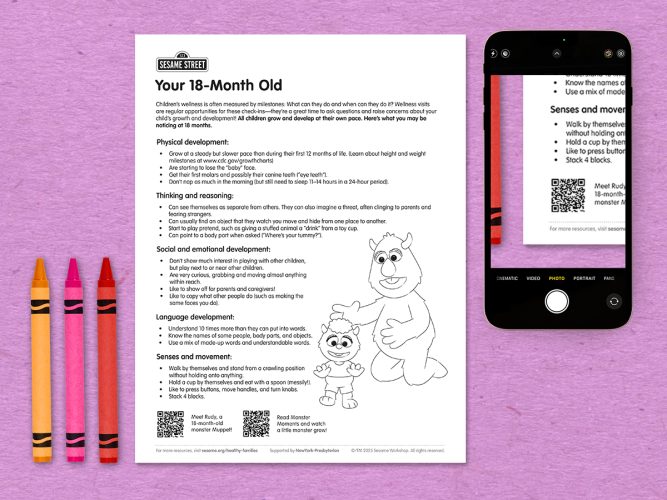
Milestones: Your 18-Month Old
All children grow and develop at their own pace; use this chart to guide your expectations and observations so you can talk to your child’s pediatrician about questions or concerns.
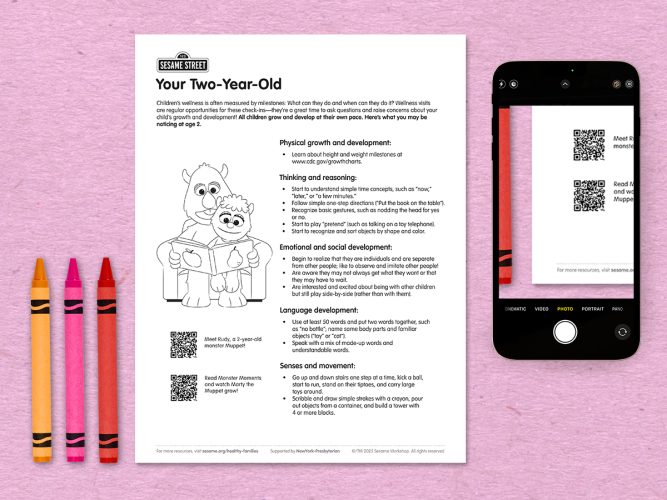
Milestones: Your Two-Year-Old
All children grow and develop at their own pace; use this chart to guide your expectations and observations so you can talk to your child’s pediatrician about questions or concerns.
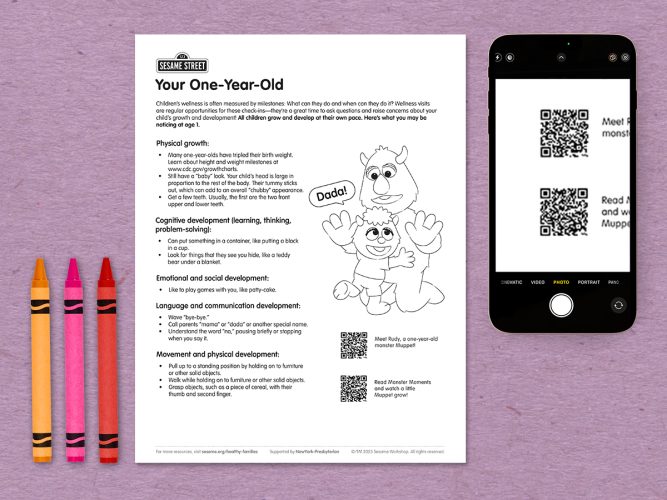
Milestones: Your One-Year-Old
All children grow and develop at their own pace; use this chart to guide your expectations and observations so you can talk to your child’s pediatrician about questions or concerns.
